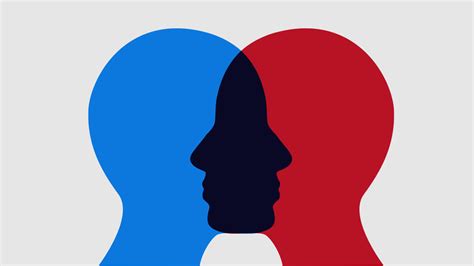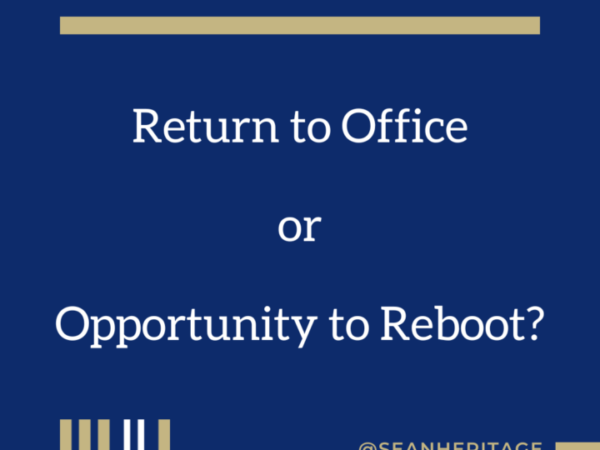I have read countless articles, lists, and surveys that attempt to capture traits shared by the most impactful leaders. For me the singular trait I value most in a leader is empathy. My fellow empathetic leaders strive to connect at the human level. We are inclusive by nature and want to see life through a diverse cross-section of lenses. And we tend to ask more questions than most. It takes quite a while to establish oneself as an empathetic leader, and once that is done the speed of execution across the team accelerates dramatically. Partly because of the high level of shared trust and partly because we can channel the insights of many even when they aren’t present (e.g., what would [insert name of a teammate with unique expertise or alternative perspective] do?).
There is no singular path toward establishing oneself as an empathetic leader, but here is a set of things we all can do if we have such a goal.
- Default to focusing our attention on others (not ourselves)
- Truly listen and take notes when conversing with others
- Through actions, make it obvious to all on the team that you see them as human beings first and foremost
- Validate their feelings…don’t try to make them feel differently
- Make them, not you, the focus of any conversation
- Demonstrate a bit of your own vulnerability by sharing your concerns, hopes, and fears
- Be comfortable with silence, making sure they are done speaking and you’ve processed what they have shared before you choose to speak
- Demonstrate authentic respect for opposing views
- Pay attention to non-verbals
- Engage with teammates on their terms and on their turf
- Always ask how you can help them
Throughout my professional life, I have long prided myself on being an empathetic leader. As prevalent as empathy is among my circle, it wasn’t until recently that I began to think deeply about the lack of empathy beyond it. It appears that a growing number of people don’t want to listen, they just want to be heard. They don’t want to engage in conversation, they want to debate. They don’t want to see life from a different perspective if only for a minute, they want to be outraged with those who have a different perspective. Self-interests drive personal behavior and uninformed opinions rule the day.
The truth is, though I value diverse opinions, I struggle with empathizing with the uninformed. And a decreasing number of people seem to make the effort to inform themselves, relying instead on the narratives the media is feeding to our personal biases rather than seeking out facts. There are many topics about which I am uninformed. The difference is that I choose to have no opinion until I can develop an informed opinion.
I truly believe that everyone has the right to voice their opinion. At the same time, and as crass as it sounds, I believe that only the informed deserve to have their opinions heard. To me, the divide today is not between the left and the right, the red and the blue, the rich and the poor, the haves and the have nots. The divide is between those of us committed to living an empathetic life and those who care only of themselves, lacking the courage to question their convictions. The saddest part is that the empathetic are outnumbered and many are allowing themselves to be taken advantage of by acquiescing to the outraged uninformed masses.
Oh how I’d love to see more people living an empathetic lifestyle. Not for my sake, but for theirs. Heck, for all of ours.
- How are you building empathy?
- Does everyone deserve the right to have their opinions heard?
- What might you tell someone who struggles with empathizing with the uninformed?



•How are you building empathy? I believe a lot of empathy comes from gratitude. So, developing a practice of gratitude and thankfulness, reading books on history and sociology (my favorites so far are “White Trash” [http://www.nancyisenberg.com/white-trash] and Poison Squad [https://www.penguinrandomhouse.com/books/312067/the-poison-squad-by-deborah-blum/] )
•Does everyone deserve the right to have their opinions heard?
Yes, sometimes when you REALLY listen to someone and they know you are paying attention, you can engage with them and learn more about why they think the way they do. It’s important to be authentically curious. Condescension will get you turned away.
•What might you tell someone who struggles with empathizing with the uninformed? Who gets to make the judgment that they’re uninformed? Eric Barker (who writes the “Barking up the Wrong Tree” newsletter features a 6-step process on working with impossible people. I’d start there. https://www.bakadesuyo.com/2019/12/change-someones-mind/
Thanks for yet another thoughtful comment. Your response to the third question (with a question, so well done :)) especially grabbed me. I believe that if we take an empathetic approach to building relationships with each other, it becomes very clear as to who is uninformed. I am uninformed on so many topics and I am quick to not have an opinion on all of those. I also believe that being uninformed is not a bad thing, it’s a real thing. It’s the being outraged or having a strong opinion without doing the research that is problematic. Really appreciate the links you shared and the dialogue. “The [empathy] runs strong in you.”
Unexpected kindness works wonders.
As always, great post. I too have been thinking on this very topic of empathy lately: how we see so little of it as well as how the personal practice seems to be increasingly difficult. My favorite statement of late is, “It’s okay to not have an opinion… And it’s most definitely okay not to VOICE your opinion if you do have one!” 🙂
Well said. I most certainly don’t have an opinion on many things and as you say, I am more than willing to refrain from sharing even the most informed ones I do have these days.
Conveying facts in a non-confrontational way has enabled many a good dialogue. By dialogue, I mean an honest and earnest two way conversation where one talks and the other practices active listening before trying to answer. In this climate of umbrage olympics, these dialogues often suffer premature termination when the uninformed denigrates the one who has taken the time to research and understand a topic beforehand.
I thoroughly enjoy those types of conversations and am spending more of my time with people who engage in them. Thought-provoking and empathy building. I don’t have time or interest in confrontation.
Thanks, Sean. I’m always gratified to see more people in leadership roles like yourself embracing and advocating the power of empathy. As a communications consultant for many years, I focus on helping companies create empathy-inpsired connections with both customers and employees. That led me to dive deeper into why it’s often so hard for caring people to understand how to express it effectively. In case you’re interested, here’s a blog I wrote about just that:
https://beyondthearc.com/blog/2020/communications/empathy-superpower-4-steps-get-it-right